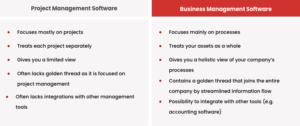AI tools for B2B marketing streamline lead generation, personalize outreach, and analyze data efficiently. They enhance marketing strategies and boost engagement.
In today’s competitive market, B2B companies need innovative approaches to stay ahead. AI tools offer precise targeting, helping businesses identify high-quality leads with ease. These tools analyze vast amounts of data, providing actionable insights for personalized marketing campaigns. By automating repetitive tasks, AI frees up time for marketers to focus on strategic initiatives.
Enhanced customer profiling and predictive analytics enable more effective decision-making. AI-driven chatbots and virtual assistants improve customer interactions, offering real-time support. Overall, AI tools empower B2B marketers to optimize their efforts, drive better results, and achieve a higher return on investment.
Introduction To Ai In B2b Marketing
Artificial Intelligence (AI) is transforming B2B marketing. It offers tools to enhance customer engagement and streamline processes. Businesses can now make data-driven decisions with ease.
Importance Of Ai
AI is crucial for B2B marketing. It helps in automating repetitive tasks. This allows marketers to focus on strategy and creativity.
Here are some key benefits of AI in B2B marketing:
- Personalization: AI tailors content to individual customers.
- Predictive Analytics: AI forecasts customer behavior.
- Efficiency: AI reduces manual work and improves accuracy.
Current Trends
AI trends in B2B marketing are evolving rapidly. Staying updated is essential. Here are some current trends:
| Trend | Description |
|---|---|
| Chatbots | AI chatbots enhance customer service and generate leads. |
| Content Generation | AI tools create engaging content quickly. |
| Account-Based Marketing (ABM) | AI identifies and targets high-value accounts. |
Adopting these trends can provide a competitive edge. AI is no longer optional; it is necessary for success in B2B marketing.
Enhancing Lead Generation
Lead generation is crucial for B2B marketing success. AI tools are transforming this process, making it efficient and effective. These tools enhance lead generation by automating tasks, predicting outcomes, and providing valuable insights.
Automated Prospecting
Automated prospecting saves time and resources. AI tools can scan vast databases to identify potential clients. They analyze data to find matching criteria for your target audience. This process ensures you reach the right people.
With automated emails and follow-ups, AI tools nurture leads effortlessly. This keeps your prospects engaged without manual intervention. The result is a streamlined process that drives conversions.
- Scan large databases quickly
- Identify potential clients accurately
- Automate email campaigns
- Maintain consistent communication
Predictive Analytics
Predictive analytics provide valuable insights. AI tools analyze historical data to forecast future trends. This helps you understand your audience better and anticipate their needs.
By predicting behavior, you can tailor your marketing efforts. Focus on high-potential leads and optimize your strategies. This approach increases the chances of converting leads into clients.
| Benefit | Description |
|---|---|
| Forecasting Trends | Predict future market trends based on past data. |
| Audience Insights | Understand audience preferences and behaviors. |
| Optimized Strategies | Focus on high-potential leads. |
- Analyze historical data
- Predict future trends
- Optimize marketing strategies
Utilizing AI for lead generation is a game-changer. It makes the process efficient and effective. By embracing these tools, you can stay ahead in the competitive B2B market.
Personalizing Customer Experience
In today’s competitive B2B landscape, personalizing the customer experience is key. AI tools enable businesses to tailor their marketing efforts. This leads to higher engagement and conversion rates. Here, we explore two major components of personalization: segmentation techniques and dynamic content.
Segmentation Techniques
Segmentation involves dividing your audience into smaller groups. AI tools can analyze data to create precise segments. Here are some common segmentation techniques:
- Demographic Segmentation: Based on age, gender, income, etc.
- Firmographic Segmentation: Based on company size, industry, location.
- Behavioral Segmentation: Based on purchase history, website interactions.
- Psychographic Segmentation: Based on values, interests, lifestyle.
AI tools can automate this process. They use machine learning algorithms to identify patterns. This makes segmentation more accurate and efficient.
Dynamic Content
Dynamic content changes based on user data. AI tools can deliver personalized content in real-time. Here are some examples of dynamic content:
- Email Campaigns: Personalized subject lines and body text.
- Website Content: Tailored landing pages and product recommendations.
- Chatbots: Customized responses based on user queries.
Dynamic content enhances user experience. It makes the interaction more relevant and engaging. AI tools ensure that the right message reaches the right audience at the right time.
| Benefit | Explanation |
|---|---|
| Higher Engagement | Personalized content grabs attention more effectively. |
| Increased Conversions | Relevant messages lead to higher conversion rates. |
| Customer Loyalty | Personalization fosters a stronger customer relationship. |
By leveraging AI tools, businesses can significantly improve their B2B marketing efforts. Personalizing the customer experience is a strategic move. It ensures long-term success and growth.

Credit: blog.hubspot.com
Optimizing Campaign Management
Optimizing campaign management is crucial for successful B2B marketing. AI tools offer powerful solutions to streamline this process. They bring efficiency, accuracy, and actionable insights to your campaigns. Let’s explore how AI tools can help optimize campaign management.
Ai-driven Insights
AI tools analyze vast amounts of data quickly. They provide real-time insights into your audience’s behavior. These insights help tailor your campaigns to better meet customer needs. AI can identify trends and patterns that humans might miss. This leads to more effective targeting and personalized messaging.
| AI Tool | Key Feature |
|---|---|
| HubSpot | Predictive Lead Scoring |
| Salesforce Einstein | Customer Insights |
| Marketo | Behavior Tracking |
Performance Tracking
Tracking the performance of your campaigns is essential. AI tools automate this process for better accuracy. They monitor key metrics like engagement, conversion rates, and ROI. This helps you understand what’s working and what needs improvement.
- Real-time analytics
- Automated reporting
- Predictive analysis
AI provides detailed reports and predictive analytics. These features help make data-driven decisions. They ensure your campaigns continuously improve.
Boosting Sales With Ai
Artificial Intelligence (AI) is transforming B2B marketing, especially in sales. AI tools enhance efficiency, accuracy, and customer engagement. These tools can significantly boost sales by automating tasks, providing valuable insights, and personalizing interactions.
Sales Forecasting
AI-powered sales forecasting tools predict future sales with high accuracy. They analyze historical data, market trends, and customer behavior. This information helps businesses plan better and allocate resources effectively.
Using AI, businesses can identify potential sales opportunities. They can also predict possible challenges. This allows for proactive solutions, ensuring steady sales growth.
Chatbots And Virtual Assistants
AI-driven chatbots and virtual assistants enhance customer interaction. They provide instant responses to customer inquiries, improving satisfaction. These tools operate 24/7, ensuring no query goes unanswered.
Chatbots can handle multiple customer queries simultaneously. This boosts efficiency and frees up human resources for more complex tasks. Virtual assistants can also schedule appointments, send reminders, and follow up on leads. This ensures no sales opportunity is missed.
| AI Tool | Function | Benefit |
|---|---|---|
| Sales Forecasting | Predict future sales | Better planning and resource allocation |
| Chatbots | Respond to customer inquiries | Improve customer satisfaction and efficiency |
| Virtual Assistants | Schedule appointments | Ensure no missed opportunities |

Credit: foundationinc.co
Streamlining Content Marketing
In the fast-paced world of B2B marketing, efficiency is key. AI tools can significantly streamline content marketing processes. These tools automate tasks, enhance productivity, and improve content quality. Let’s explore how AI can transform your content marketing strategy.
Content Creation Tools
AI-powered content creation tools help generate engaging content quickly. They can produce blog posts, social media updates, and even email newsletters. These tools use natural language processing to create human-like text.
- GPT-4o: Generates high-quality text based on prompts.
- Copy.ai: Assists in creating marketing copy.
- Jarvis.ai: Offers templates for various content types.
These tools save time and reduce the burden on your content team. They ensure consistent quality and tone across all platforms.
Ai For Seo
AI tools can enhance your SEO strategies by analyzing large amounts of data. They identify keywords, track competitor performance, and suggest content improvements.
| Tool | Function |
|---|---|
| SEMrush | Keyword research and competitive analysis |
| Ahrefs | Backlink analysis and keyword tracking |
| Surfer SEO | Content optimization based on SERP data |
These tools provide actionable insights to improve your search rankings. They help you create content that resonates with your audience.
By leveraging AI for both content creation and SEO, you can stay ahead of the competition. These tools make your marketing efforts more efficient and effective.
Improving Customer Retention
Customer retention is critical for B2B companies. Retaining customers costs less than acquiring new ones. AI tools can play a key role. They analyze data, predict behaviors, and offer insights. This helps businesses create effective retention strategies. Let’s explore how AI tools improve customer retention.
Churn Prediction
Churn prediction identifies customers likely to leave. AI tools analyze customer data to find patterns. They look at purchase history, engagement, and feedback. This helps predict churn accurately.
Businesses can then act proactively. They can offer personalized incentives to retain customers. This reduces churn rates and boosts loyalty.
Customer Feedback Analysis
Customer feedback is invaluable for improving services. AI tools analyze feedback quickly and efficiently. They can process large volumes of data in minutes.
AI tools identify common issues and trends. They highlight areas needing improvement. This helps businesses address problems promptly.
Using AI for feedback analysis enhances the customer experience. It ensures that customers feel heard and valued.
| AI Tool | Function |
|---|---|
| Churn Prediction Tool | Predicts customer churn |
| Feedback Analysis Tool | Analyzes customer feedback |
These AI tools empower businesses. They make data-driven decisions to improve retention. Investing in AI can lead to significant gains in customer loyalty.
Measuring Roi With Ai
Measuring ROI with AI is crucial for B2B marketing success. AI tools provide precise insights, making ROI measurement easier and more accurate. These tools help marketers understand the effectiveness of their campaigns. They also identify the best strategies for future efforts.
Attribution Models
Attribution models assign value to each marketing touchpoint. AI-driven models give more accurate insights. This helps in understanding which channels drive conversions. Popular models include:
- First-Touch Attribution
- Last-Touch Attribution
- Multi-Touch Attribution
First-Touch Attribution gives all credit to the first interaction. Last-Touch Attribution focuses on the final touchpoint before conversion. Multi-Touch Attribution distributes value across all touchpoints.
Advanced Analytics
AI enhances advanced analytics by processing large data sets quickly. This capability provides deeper insights into customer behavior. Marketers can use these insights to optimize campaigns. Key features of AI-powered analytics include:
- Predictive Analytics
- Customer Segmentation
- Real-Time Data Analysis
Predictive Analytics forecasts future trends based on historical data. Customer Segmentation divides the audience into specific groups. Real-Time Data Analysis offers immediate insights, allowing quick adjustments to strategies.
Below is a table summarizing the benefits of AI tools in measuring ROI:
| Feature | Benefit |
|---|---|
| Attribution Models | Accurate value assignment to touchpoints |
| Predictive Analytics | Forecast future trends |
| Customer Segmentation | Targeted marketing efforts |
| Real-Time Data Analysis | Immediate insights and quick adjustments |
Future Of Ai In B2b Marketing
The future of AI in B2B marketing is bright. AI tools are transforming how businesses market to each other. These tools offer new ways to reach and engage customers. Let’s explore emerging technologies and long-term benefits of AI in B2B marketing.
Emerging Technologies
Many new technologies are changing B2B marketing. These tools help businesses work smarter and faster.
- Machine Learning: Machine learning helps predict customer behavior. It analyzes data to find patterns. This makes marketing more effective.
- Natural Language Processing (NLP): NLP helps understand and generate human language. This improves customer communication.
- Chatbots: Chatbots offer instant customer support. They answer questions and provide information 24/7.
- Predictive Analytics: Predictive analytics forecast future trends. They help businesses plan better marketing strategies.
Long-term Benefits
AI tools offer many long-term benefits for B2B marketing. These benefits improve efficiency and customer satisfaction.
| Benefit | Description |
|---|---|
| Personalization | AI helps deliver personalized content. This leads to higher customer engagement. |
| Cost Savings | AI reduces manual work. This saves time and money for businesses. |
| Data-Driven Decisions | AI provides insights from data. This helps make better marketing decisions. |
| Improved Customer Experience | AI offers faster and better customer service. This improves customer satisfaction. |
AI tools are transforming B2B marketing. They offer new ways to connect with customers. These tools provide many long-term benefits, making them essential for future marketing strategies.

Credit: www.toprankmarketing.com
Frequently Asked Questions
What Are Ai Tools For B2b Marketing?
AI tools for B2B marketing automate tasks like lead generation, customer segmentation, and personalized email campaigns. They enhance efficiency and accuracy.
How Do Ai Tools Improve Lead Generation?
AI tools analyze data to identify high-quality leads. They predict which prospects are most likely to convert, improving lead generation efficiency.
Can Ai Tools Personalize Marketing Campaigns?
Yes, AI tools can personalize marketing campaigns by analyzing customer data. They tailor messages to individual preferences, enhancing engagement and conversion rates.
Are Ai Tools Cost-effective For B2b Marketing?
AI tools can be cost-effective by automating repetitive tasks and optimizing campaigns. This leads to better ROI and resource allocation.
Conclusion
AI tools are revolutionizing B2B marketing. They streamline processes, enhance targeting, and boost ROI. Embrace AI to stay competitive. These tools offer valuable insights and efficiencies. Integrate them into your strategy for improved results. The future of B2B marketing is here, powered by AI.
Don’t miss out on these game-changing technologies.





